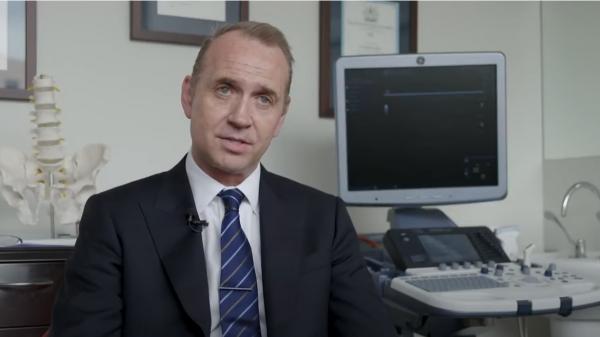About inflammatory arthritis
View transcript
Wendy Favorito
Consumer Director Arthritis Australia
So it’s estimated nearly 4 million people in Australia live with a form of arthritis and there is almost 100 different forms of the disease.
Dr. Samuel Whittle
Rheumatologist
When rheumatologists think about joint disease and arthritis, we tend to divide things up into two main categories: into the inflammatory and non-inflammatory. So when we think about non-inflammatory disease, that’s things like osteoarthritis which is more of a wear-and-tear phenomenon and tends to affect people as they get older. The other category is the inflammatory diseases and they tend to be caused by changes in a person’s immune system. The immune system can then activate and start to cause inflammation inside the joints or even muscles and ligaments, and then this leads to a whole host of rheumatological diseases including rheumatoid arthritis, psoriatic arthritis and ankylosing spondylitis.
Assoc. Professor Peter Youssef
Rheumatologist
Inflammation occurs when white cells go from the blood stream into joints and this causes pain, redness, swelling, and can lead to joint damage.
Dr. Marina Kang
General Practitioner
In a joint there’s usually two bones and then there’s fluid and there’s tissue to cushion the joint. In arthritis the tissue and the fluid becomes inflamed and attacked by their immune system so it’s not as strong as a shock absorber. So as a result the joint becomes worn and the bone may start to affect and grind the other bone and so there’s a lot of pain and inflammation and swelling and hot heat; as a result of that, that’s where the patient will feel the symptoms. If we can protect the joint, again with medication, with physical therapies, with making sure that mechanically there’s not a lot of weight on the joint, then of course preservation of the joint is something that they can achieve.













